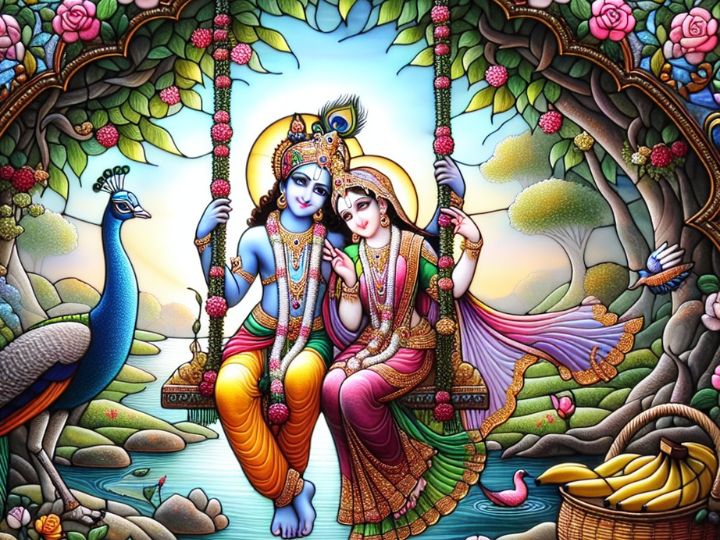
Śrīmad-Bhāgavatam 7.9.17
—
Māyāpur, February 24, 1976
So yasmāt priyāpriya-viyoga-samyoga-janma. Viyoga-samyoga-janma. As soon as one child is born, he is separated from the former life, and he is connected with another new life, new body, viyoga-samyoga. Maybe the former body was very pleasing, and this body is not very pleasing, degraded. That is possible. Dehāntara-prāptiḥ [Bg. 2.13]. It is not that you'll always get a body very pleasing. But the illusory energy is so strong, even one gets the body of a pig, he thinks, "It is very nice." This is called prakṣepātmika-śakti. Māyā has got especially two energies: āvaraṇātmika and prakṣepātmika. Generally māyā keeps us covered with illusion, and if one is little enlightened, wants to get out of the clutches of māyā, there is another potency of māyā, who is that prakṣepātmika. Suppose one thinks, "Now I shall become Kṛṣṇa conscious. This ordinary material consciousness is so disturbing. Let me become Kṛṣṇa conscious." So māyā will say, "What you will do with this? Better remain in material consciousness." This is called prakṣepātmika-śakti. Therefore sometimes some man comes in our society; after staying for days, he goes away. This is prakṣepata, thrown away. Unless he's very sincere, he cannot stay with us; he'll be thrown away. So Prahlāda Mahārāja said that these two positions—somebody is pleasing, and somebody is not pleasing—it is going on perpetually. Not that "If I change my this body, this process will also stop." No. So long you have got this body in the material world, you'll have these two processes. Somebody will be your friend, and somebody will be your enemy. Yoga-samyoga-janma.
So as soon as there are enemies, there is lamentation, anxiety. Śokāgninā. Such lamentation is just like fire of lamentation. Śokāgninā sakala-yoniṣu. If you think that only the human society such things are there—somebody's enemy, somebody's friend—no. In any society, any yoni... You have seen in the even in the sparrows, the bird society, they are also fighting. You have seen it. They are also mixing very intimately, again fighting, So either you take birds... Or dogs. They are famous for fighting. So this is going on: somebody very dear, somebody inimical and fighting between them. Sakala-yoniṣu dahyamānaḥ. You cannot get escape by avoiding one society and go to the other society. That is not possible. Thus fire of disagreement, enmity and friendship, it will go on, not only here, even in the heavenly planet. In the heavenly planet there is fight between the devas and asuras. The asuras are envious of the devas, and devas are also envious of the asuras. Everywhere. Even King Indra, he has got enemies although he's very opulent. We want to go to the heavenly planet for enjoying the opulence of that atmosphere, but there is also the same thing. (aside, coughing:) Water. So you cannot avoid it, Prahlāda Mahārāja says.

